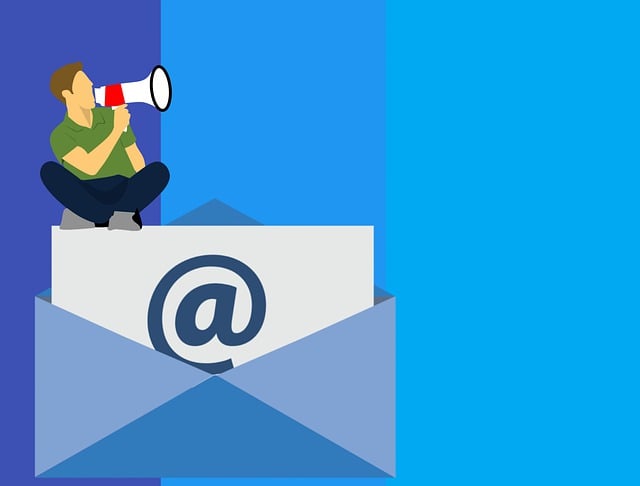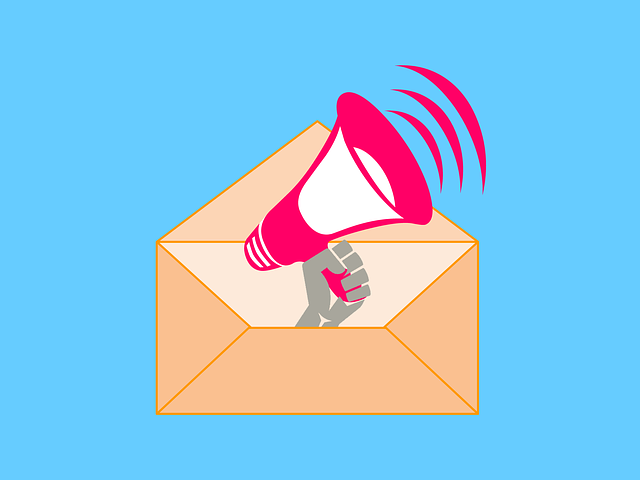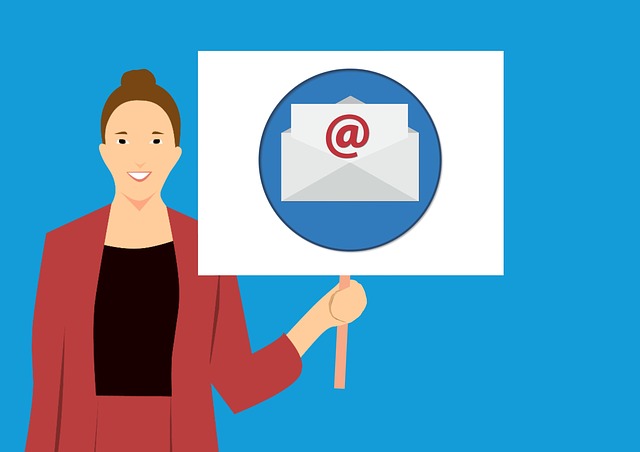Are you caught between a rock and a hard place when it comes to B2B marketing strategies? It’s time to put your thinking cap on and determine which approach is more effective: B2B email marketing or content marketing.
In this article, we will delve into the pros and cons of both strategies, providing you with concrete data to help you make an informed decision.
B2B email marketing, like a wolf in sheep’s clothing, can appear straightforward but hold immense power. It allows you to directly reach decision-makers within target companies, delivering personalized messages that drive conversions.
On the other hand, content marketing, like a jack of all trades, offers a versatile approach by creating and distributing valuable content that attracts and engages prospects.
We will compare the effectiveness of these strategies, exploring their strengths and weaknesses, and also discuss how they can be integrated and work in synergy. Additionally, we will showcase case studies and success stories to illustrate real-world examples of each strategy’s impact.
By the end, you will be equipped with the knowledge to choose the right approach for your business. So, let’s dive in and unravel the mystery of B2B email marketing versus content marketing.
Key Takeaways
- B2B Email Marketing allows for direct reach to decision-makers with personalized messages, while Content Marketing involves creating valuable content to attract and engage prospects.
- Integrating B2B Email Marketing and Content Marketing through automation saves time, delivers messaging at the right time to the right people, and allows for easier tracking of metrics and optimization of marketing efforts.
- Content Marketing builds brand loyalty, establishes thought leadership, and can be measured through metrics such as organic traffic growth, social media engagement, and customer lifetime value.
- Choosing the right approach depends on the target audience and industry, and tailoring the approach by creating relevant and industry-specific content helps establish credibility and resonate with the target audience.
Understanding B2B Email Marketing
Are you curious about how B2B email marketing can help your business reach new heights of success? Well, let’s dive into it.
B2B email marketing is a powerful tool that allows you to automate your email campaigns, ensuring that you reach the right audience at the right time. Through email automation, you can streamline your lead generation efforts, nurturing leads and guiding them through the sales funnel.
By leveraging personalized and targeted email content, you can effectively engage with potential customers and increase your conversion rates. Email marketing also provides valuable data insights that can help you refine your strategies and optimize your campaigns for maximum effectiveness.
Now, let’s explore content marketing and see how it compares to B2B email marketing in driving business growth.
Exploring Content Marketing
When it comes to exploring content marketing, you’ll be surprised to learn that 70% of consumers prefer to learn about a company through articles rather than advertisements. This highlights the importance of creating valuable and informative content to engage your target audience.
Content creation is a strategic process that involves understanding your audience’s interests and pain points, and then crafting relevant and engaging articles, blog posts, videos, and other formats. However, creating great content is only one part of the equation. Optimizing content distribution is equally crucial to ensure that your target audience sees and engages with your content.
This involves leveraging the right channels, such as social media, email newsletters, and influencer partnerships, to reach and connect with your audience effectively. By exploring content creation and optimizing content distribution, you can maximize the impact of your marketing efforts.
Transitioning to the subsequent section about comparing effectiveness, it’s important to analyze the results of both B2B email marketing and content marketing to determine which strategy is more effective.
Comparing Effectiveness
When comparing the effectiveness of b2b email marketing and content marketing, it’s important to consider key points such as reach and engagement, conversion rates, and ROI.
You need to assess how well each strategy allows you to reach and engage with your target audience. You also need to evaluate how effective they are in converting leads into customers and generating a return on investment.
Additionally, it’s crucial to determine which approach has a lasting impact and can be sustained over time to maximize your marketing efforts.
Reach and Engagement
B2B email marketing and content marketing both have the power to captivate and connect with your target audience, ensuring maximum reach and engagement. When it comes to measuring effectiveness, B2B email marketing allows you to track open rates, click-through rates, and conversion rates. Content marketing, on the other hand, allows you to measure effectiveness through metrics such as website traffic, time spent on page, and social media shares.
To optimize your strategies, it’s important to analyze these metrics and make data-driven decisions. To evoke an emotional response in your audience, consider these three key elements:
- Personalization: Tailor your messages to address the specific pain points and needs of your audience.
- Storytelling: Use compelling narratives to engage and resonate with your audience on a deeper level.
- Visuals: Incorporate eye-catching visuals, such as infographics or videos, to enhance the impact of your message.
By measuring effectiveness and optimizing strategies, you can ensure that your B2B email marketing and content marketing efforts are driving results.
Now, let’s explore the next section about conversion rates and ROI.
Conversion Rates and ROI
To optimize your strategies, it’s important to analyze conversion rates and ROI, and an interesting statistic shows that companies with a strong content marketing strategy experience 6 times higher conversion rates compared to those without one. This highlights the significance of conversion rate optimization and measuring marketing effectiveness. One way to measure the effectiveness of your campaigns is by tracking the conversion rate, which is the percentage of visitors who take the desired action, such as making a purchase or filling out a form. Additionally, calculating the return on investment (ROI) helps determine the profitability of your marketing efforts. By focusing on content marketing, you can create valuable and engaging content that resonates with your target audience, leading to higher conversion rates and a better ROI. Moving forward, let’s explore the long-term impact and sustainability of these strategies.
Long-Term Impact and Sustainability
Creating a sustainable content marketing strategy can have a lasting impact on your business, allowing you to build brand loyalty, establish thought leadership, and drive long-term success. By consistently producing valuable content that resonates with your target audience, you can position your brand as a trusted industry resource.
This not only helps in generating leads and conversions but also enhances customer retention. To measure the effectiveness of your content marketing efforts, it’s essential to track sustainability metrics such as organic traffic growth, social media engagement, and customer lifetime value.
Long-term planning is crucial in content marketing as it enables you to align your content strategy with your business goals and adapt to changing market trends. By focusing on sustainability and long-term impact, you can create a robust content marketing strategy that yields significant results.
As we move on to discussing integration and synergy, it’s important to ensure that your content marketing efforts are seamlessly integrated with other marketing channels.
Integration and Synergy
When it comes to integrating your marketing efforts, you’ll find that content marketing and B2B email marketing can work together in perfect harmony, like a well-tuned orchestra. By combining the strengths of both strategies, you can create a powerful marketing campaign that drives results. One way to achieve this integration is through automation, where you can set up automated email campaigns that are triggered by specific actions or behaviors of your target audience. This not only saves time but also ensures that your messaging is delivered at the right time to the right people. Additionally, measuring the effectiveness of your campaigns becomes easier when you integrate content marketing and B2B email marketing. By tracking metrics such as open rates, click-through rates, and conversions, you can gain valuable insights into what resonates with your audience and optimize your marketing efforts accordingly. Now, let’s dive into some case studies and success stories to further explore the impact of these strategies.
Case Studies and Success Stories
Now that you understand the importance of integration and synergy between b2b email marketing and content marketing, let’s delve into the power of case studies and success stories.
In the world of marketing, nothing speaks louder than real-life examples of success. Case study analysis allows you to showcase how your products or services have solved specific problems for your customers, providing tangible evidence of your value proposition.
Additionally, customer testimonials offer social proof and build trust with potential clients. By sharing stories of satisfied customers, you can demonstrate the positive impact your business has had on others.
As you explore the effectiveness of b2b email marketing and content marketing, these case studies and success stories will serve as powerful tools in your arsenal.
So, let’s move on to the next section and discuss choosing the right approach for your business.
Choosing the Right Approach for Your Business
When choosing the right approach for your business, you need to consider your target audience and industry. Assessing your resources and budget is also crucial in determining the most effective marketing strategy.
By developing a customized approach that takes into account these factors, you can ensure that your marketing efforts are data-driven, strategic, and tailored to your specific business needs.
Considering Your Target Audience and Industry
To effectively consider your target audience and industry, you need to tailor your approach and create content that resonates with them. This means understanding the specific needs and preferences of your audience and developing targeted strategies to reach them. Here are four key points to keep in mind:
-
Research your target audience: Gain a deep understanding of their demographics, interests, and pain points. This will help you create content that addresses their specific needs and challenges.
-
Develop industry-specific content: Show your expertise by creating content that’s relevant to your industry. This will help you establish credibility and position your brand as a thought leader.
-
Personalize your messaging: Use data and insights to customize your communication. This’ll make your audience feel understood and increase the chances of engagement.
-
Test and refine: Continuously analyze the performance of your content and adjust your approach accordingly. This’ll ensure that you’re delivering the most effective messages to your target audience.
By considering these factors, you can create a content marketing strategy that meets the unique needs of your audience and industry. As you move forward, it’s important to assess your resources and budget to ensure you can execute your plan effectively.
Assessing Your Resources and Budget
Make sure you assess your resources and budget carefully in order to effectively execute your content marketing strategy and meet the unique needs of your audience and industry.
When considering your options, take into account the available resources you have at your disposal, such as skilled staff, marketing tools, and budgetary constraints.
Evaluating the cost-effectiveness of different content marketing tactics is crucial to ensure you get the most out of your investment. This includes analyzing the potential return on investment (ROI) and comparing it to other marketing channels like B2B email marketing.
By assessing your resources and budget, you can determine which content marketing strategies align with your goals and resources. This will enable you to develop a customized marketing strategy that maximizes your reach and impact.
Developing a Customized Marketing Strategy
If you want to effectively reach your target audience and make a lasting impact, it’s essential to develop a customized marketing strategy that caters to their specific needs and preferences.
Customization benefits play a crucial role in driving successful marketing campaigns. By tailoring your approach to individual businesses, you can create personalized content that resonates with your audience, increasing engagement and conversion rates.
Marketing strategy development is an ongoing process that requires careful planning and analysis. Start by understanding your target audience’s pain points and challenges. Conduct market research and gather data to inform your strategy. Use this information to create compelling content that addresses their needs and offers valuable solutions.
By taking a personalized approach, you can build trust, establish credibility, and ultimately drive business growth.
Frequently Asked Questions
How much does it cost to implement a B2B email marketing campaign?
Implementing a B2B email marketing campaign can vary in cost depending on factors such as the size of your target audience, the complexity of your campaign, and the resources needed.
However, a cost comparison and ROI analysis are crucial to determine the effectiveness of your campaign. By analyzing the costs involved and measuring the return on investment, you can make data-driven decisions and develop a strategic approach to maximize the impact of your B2B email marketing efforts.
What are some common challenges faced in content marketing for B2B companies?
When it comes to content marketing for B2B companies, there are common challenges that arise.
One interesting statistic to consider is that 63% of B2B marketers struggle with creating engaging content. This highlights the importance of developing high-quality, valuable content to attract and retain potential customers.
Another challenge is lead generation, as 61% of B2B marketers struggle with generating high-quality leads. This emphasizes the need for strategic content creation that not only educates and informs but also drives conversions and sales.
Can B2B email marketing and content marketing be used together in a marketing strategy?
Integrating B2B email marketing and content marketing in your strategy has numerous benefits. By combining these two approaches, you can create a cohesive and comprehensive marketing campaign.
B2B email marketing allows you to directly reach your target audience and nurture leads, while content marketing provides valuable information and establishes your brand as an industry thought leader.
Together, they enhance customer engagement, increase brand awareness, and drive conversions. This data-driven and strategic approach maximizes the effectiveness of your marketing efforts.
Are there any specific industries that are more suitable for B2B email marketing?
In the vast landscape of B2B email marketing, certain industries stand out like beacons, beckoning marketers to explore their potential. These industries, like technology and software, finance, and professional services, have proven to be fertile ground for B2B email marketing strategies.
By tailoring content to their specific needs and pain points, and leveraging the power of personalized messaging, marketers can create effective campaigns that resonate with these industries, leading to increased engagement and conversions.
What are some key metrics to measure the effectiveness of content marketing in B2B settings?
To measure the effectiveness of content marketing in B2B settings, there are several key metrics you should consider.
Start by tracking website traffic, including unique visitors and page views. Look at engagement metrics like time spent on page and bounce rate.
Measure lead generation through conversion rates and the number of qualified leads generated. Analyze social media metrics such as shares, comments, and likes.
Finally, track sales conversions and revenue generated from content marketing efforts. These metrics will provide valuable insights into the effectiveness of your B2B content marketing strategy.
Conclusion
In conclusion, when it comes to B2B email marketing versus content marketing, the choice isn’t about one being more effective than the other, but rather about finding the right blend that resonates with your audience.
Like a well-crafted symphony, the integration and synergy between these two strategies can create a harmonious melody that captivates and engages your target market.
By leveraging data-driven insights and strategic planning, you can create a powerful marketing symphony that leaves a lasting impression on your audience, driving business success.






![An image showcasing the evolution of B2B email marketing: a futuristic email inbox displaying personalized messages, interactive elements, automation workflows, advanced analytics, seamless integrations, and optimized mobile experiences, representing the 6 trends to watch in [Current Year]](https://incomeroar.com/wp-content/uploads/2023/07/6-b2b-email-marketing-trends-to-watch-in-current-year.png)


